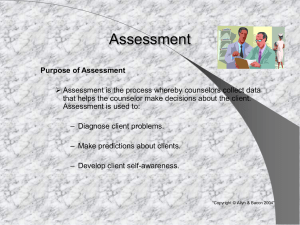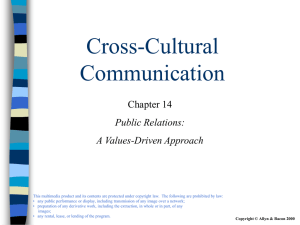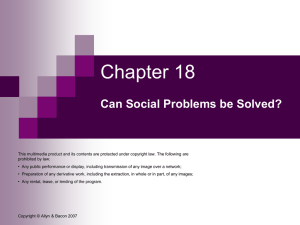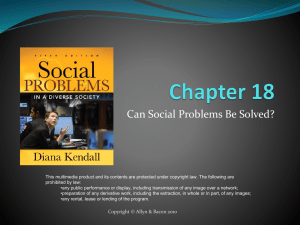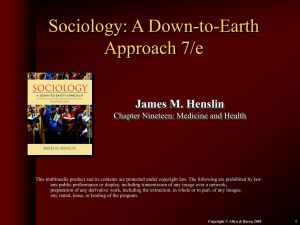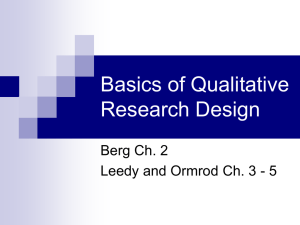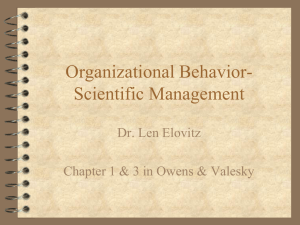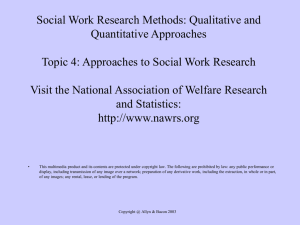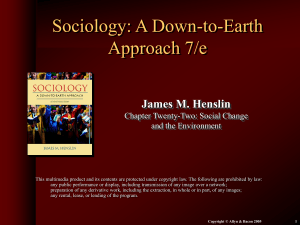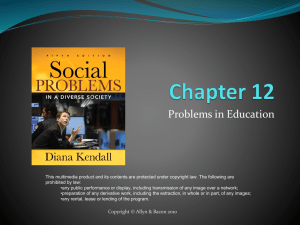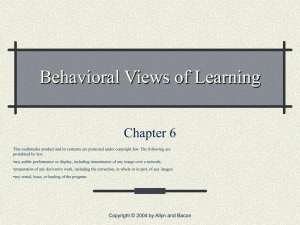Henslin22 - You Are Next
advertisement
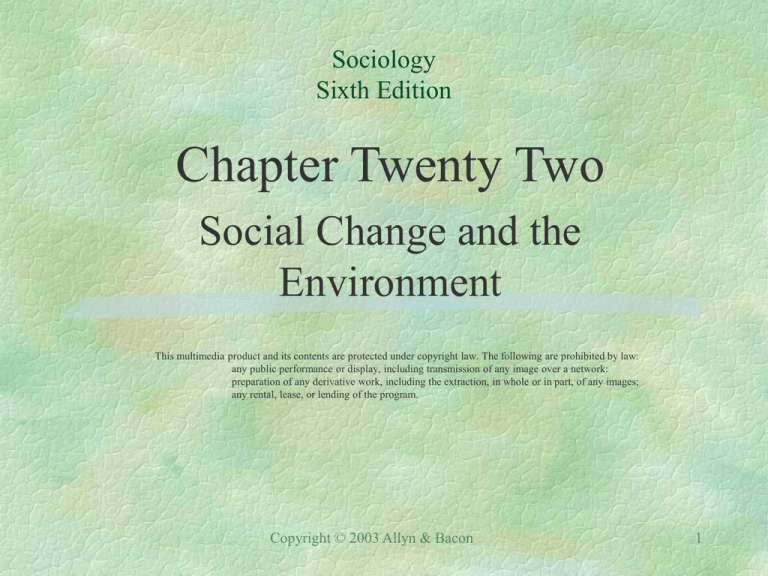
Sociology Sixth Edition Chapter Twenty Two Social Change and the Environment This multimedia product and its contents are protected under copyright law. The following are prohibited by law: any public performance or display, including transmission of any image over a network: preparation of any derivative work, including the extraction, in whole or in part, of any images; any rental, lease, or lending of the program. Copyright © 2003 Allyn & Bacon 1 Chapter Overview How Social Change Transforms Society How Technology Changes Society Theories and Processes of Social Change The Growth Machine Versus the Earth Copyright © 2003 Allyn & Bacon 2 How Social Change Transforms Society Social change - a shift in the characteristics of culture and society. The first revolution allowed hunting and gathering societies to develop into horticultural and pastoral societies. Copyright © 2003 Allyn & Bacon 3 How Social Change Transforms Society The plow allowed for agricultural societies to emerge. With the steam engine came the Industrial Revolution. Modernization - the sweeping changes ushered in by the Industrial Revolution. Copyright © 2003 Allyn & Bacon 4 Theories and Processes of Social Change Cultural Evolution - each society evolves from simpler to more complex forms. As they evolve, they will reach a higher state. Copyright © 2003 Allyn & Bacon 5 Theories and Processes of Social Change Natural Cycles - assume that civilizations are like organisms. They are born, come to maturity, and decline. Copyright © 2003 Allyn & Bacon 6 Theories and Processes of Social Change Conflict over Power - Karl Marx identified a recurring theme in human history. A struggle develops between a current arrangement of power and a new social order. Copyright © 2003 Allyn & Bacon 7 Theories and Processes of Social Change Ogburn’s Theory - proposed a view of change that is based on technology. Technology changes by three processes: (1) invention (2) discovery (3) diffusion Copyright © 2003 Allyn & Bacon 8 How Technology Changes Society Technology - it refers to tools, and to the skills needed to make or use these tools. The chief characteristic of postindustrial societies is technology. Copyright © 2003 Allyn & Bacon 9 How Technology Changes Society Technology greatly extends our abilities to analyze information, to communicate, and to travel. These new technologies allow us to do what had never been done. Copyright © 2003 Allyn & Bacon 10 Copyright © 2003 Allyn & Bacon 11 The Growth Machine Versus the Earth Of all the problems we face, perhaps those that affect the natural environment hold the most serious implications. Copyright © 2003 Allyn & Bacon 12 The Growth Machine Versus the Earth Environmental problems: acid rain the greenhouse effect global warming energy shortages environmental racism Copyright © 2003 Allyn & Bacon 13 Environmental Sociology Environmental sociology - its focus is the relationship between human societies and the environment. The goal of environmental sociology is not to stop pollution or nuclear power. Copyright © 2003 Allyn & Bacon 14 Environmental Sociology The goal is to study how humans affect the physical environment, and how the environment affects humans. Copyright © 2003 Allyn & Bacon 15 Copyright © 2003 Allyn & Bacon 16 The End Copyright © 2003 Allyn & Bacon 17
